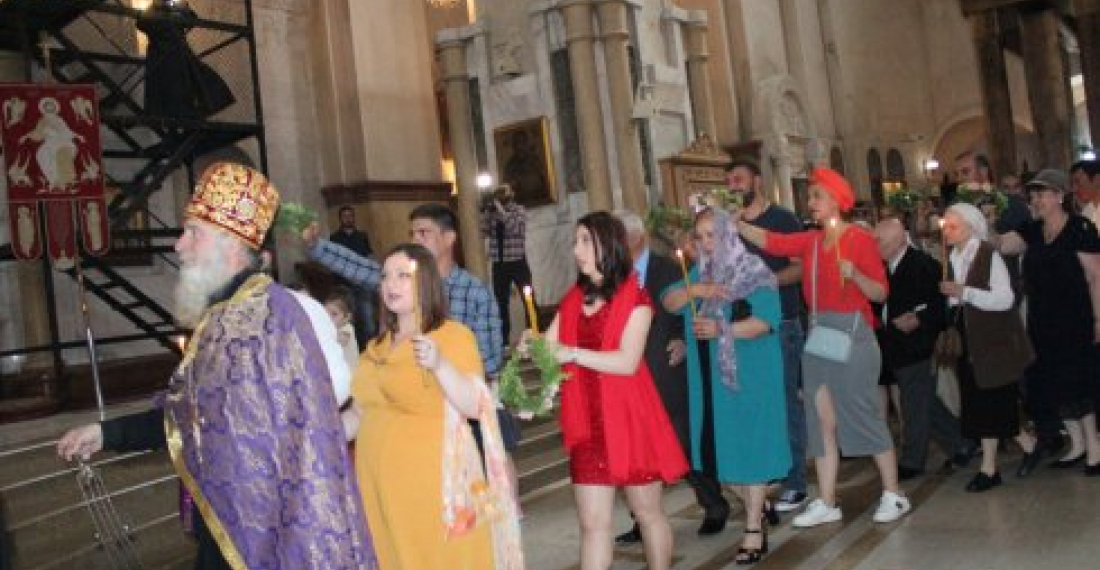Hundreds of Georgian couples had their marriage bond blessed by the Georgian Orthodox Church at a special ceremony coinciding with the day of Family and Virtue.
More than 500 couples who had already started families but had no Church wedding participated in mass wedding ceremonies held on Thursday, reports the website of the Georgian Patriarchate.
The services were held with the blessing of His Holiness Catholicos-Patriarch Ilia II of Georgia. The organisational work was undertaken by the Society of Chokhonetsev of Georgia, founded by the Georgian Patriarchate with the purpose of strengthening the institution of the traditional family.
The first mass wedding in Georgia was held in 2017 and was attended by several hundred couples. Last year the event, which crowned about 400 couples throughout Tbilisi, coincided with the city-wide procession in honor of Family Purity Day. The annual procession this year was held on Friday, 17 May.
However, family purity day is not without controversy. It was launched to counter the International Day Against Homophobia, Transphobia and Biphobia and in earlier years the occasion saw clergy-led mobs violently attacking activists marking the occasion.
This year, in a statement the Patriarchate emphasised that, "this event is peaceful and it does not aim at any kind of aggression. It is the expression of our community's support towards traditional values. The Church is distancing itself from any kinds of violence".
source commonspace.eu with agencies
photo: A mass marriage ceremony was held in Tbilisi as part of events marking the day of family purity (picture courtesy of the websire of the Patriarchate of Georgia)







